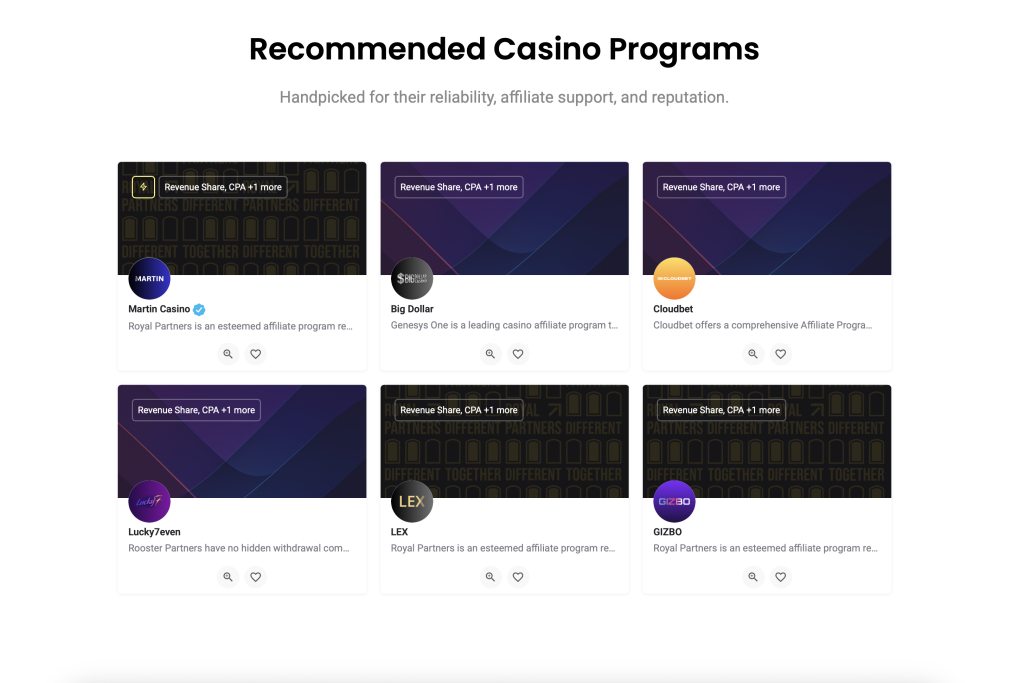Navigating Legal Requirements in iGaming Affiliate Marketing: Essential Insights

Navigating Legal Compliance in iGaming Affiliate Marketing
In the ever-evolving landscape of iGaming affiliate marketing, ensuring legal compliance is paramount. As regulations tighten and scrutiny increases, affiliates must navigate a complex web of laws and standards to operate ethically and avoid legal pitfalls. In this comprehensive guide, we delve into the intricacies of legal compliance in iGaming affiliate marketing, providing valuable insights and practical tips to help affiliates stay on the right side of the law.
1. Introduction to Legal Compliance in iGaming Affiliate Marketing
Legal compliance forms the foundation of any successful affiliate marketing endeavor. It encompasses adherence to a myriad of regulations, ranging from data protection laws to advertising standards and gambling regulations. Failure to comply with these laws can result in severe consequences, including hefty fines, reputational damage, and even legal action.
2. Understanding Regulatory Frameworks: Global vs. Regional Laws
The iGaming industry operates in a complex regulatory environment, with laws varying significantly from one jurisdiction to another. While some countries have strict regulations governing online gambling, others have more lenient frameworks or even outright bans. Affiliates must familiarize themselves with both global trends and regional nuances to ensure compliance across different markets.
3. Key Legal Considerations for iGaming Affiliates
Several key legal considerations are essential for iGaming affiliates to understand:
- Data Protection: Affiliates must comply with data protection laws, such as the GDPR in Europe, when collecting and processing user data.
- Advertising Standards: Affiliates must adhere to advertising standards set forth by regulatory bodies to ensure transparency and prevent misleading marketing practices.
- Gambling Regulations: Affiliates operating in the iGaming sector must comply with gambling regulations specific to each jurisdiction, including licensing requirements and responsible gambling measures.
4. Compliance Requirements for Different Markets
Compliance requirements vary significantly depending on the target market. Affiliates operating in multiple jurisdictions must familiarize themselves with the specific regulations governing each market and tailor their strategies accordingly. This may involve obtaining licenses, adhering to advertising restrictions, and implementing robust compliance measures to protect consumers.
5. Best Practices for Ensuring Legal Compliance
To ensure legal compliance in iGaming affiliate marketing, affiliates should:
- Conduct thorough research: Stay informed about relevant laws and regulations in target markets.
- Seek legal advice: Consult with legal experts specializing in iGaming to ensure compliance with complex regulatory requirements.
- Implement robust compliance procedures: Develop internal policies and procedures to ensure adherence to legal and regulatory standards.
- Stay updated: Regularly monitor regulatory developments and adjust strategies accordingly to remain compliant in a rapidly changing legal landscape.
6. Case Studies: Examples of Legal Issues Faced by iGaming Affiliates
Numerous case studies highlight the legal challenges faced by iGaming affiliates, ranging from advertising disputes to regulatory enforcement actions. By studying these cases, affiliates can gain valuable insights into common pitfalls and best practices for mitigating legal risks.
7. Tools and Resources for Staying Compliant
Several tools and resources are available to help iGaming affiliates stay compliant, including:
- Compliance software: Utilize specialized software designed to assist with compliance management and monitoring.
- Regulatory databases: Access comprehensive databases containing information on relevant laws and regulations in different jurisdictions.
- Industry associations: Join industry associations and networks to stay updated on regulatory developments and best practices.
8. Conclusion: Importance of Upholding Legal Standards in iGaming Affiliate Marketing
In conclusion, legal compliance is essential for the long-term success and sustainability of iGaming affiliate marketing. By understanding and adhering to relevant laws and regulations, affiliates can build trust with consumers, protect their reputation, and avoid costly legal consequences. By prioritizing legal compliance, affiliates can navigate the complex regulatory landscape with confidence and integrity.
Stay Compliant, Stay Competitive
As the iGaming industry continues to evolve, legal compliance remains a cornerstone of ethical affiliate marketing practices. By staying informed, implementing best practices, and leveraging available tools and resources, affiliates can uphold legal standards while maximizing their earning potential in this dynamic and lucrative sector.
Comments
You must be logged in to leave a review.


